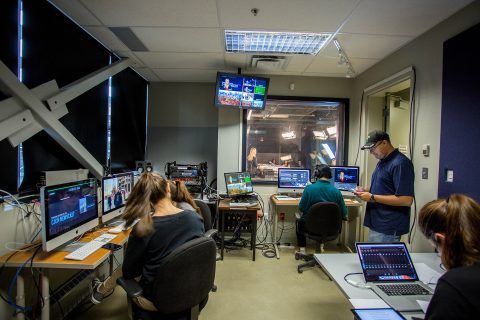Visual Journalism (GrDip)
Program overview
The Graduate Diploma in Visual Journalism, starting in July and ending in April, gives you the skills required to tell impactful stories through still photography and video. The digital media landscape now makes it possible for individuals to shoot, edit, and write their own stories in a visually based multimedia practice. Our program educates students to think critically and aesthetically. Under the guidance of our faculty, many of whom are working photojournalists, you will explore various forms of visual journalism including daily news photography, documentary and studio photography. Our courses provide a foundation in the theoretical and analytical dimensions of journalism. The program offers various internships and opportunities to connect with working journalists, all with an eye to offering real opportunities in the working world of visual journalism.
Program structure
Degree Requirements
Fully-qualified candidates are required to complete a minimum of 33 credits.
Please see the Journalism Courses page for course descriptions.
Visual Journalism Graduate Diploma (33 credits)
| 27 | credits of Core courses:
|
| 6 | credits of Elective Courses chosen in consultation with the Diploma Program Director:
Please note that some electives may not be offered in a given term or year. |
Admission requirements
Admission Requirements
- Undergraduate degree with a minimum GPA of 3.00 on a 4.30 scale.
- Some experience in journalism, photojournalism or a media-related field is considered an asset.
- Proficiency in English. Applicants whose primary language is not English must demonstrate that their knowledge of English is sufficient to pursue graduate studies in their chosen field. Please refer to the English language proficiency page for further information on requirements and exemptions.
Application process
Application deadlines

FALL
n/a

WINTER
n/a

SUMMER
January 15 (Canadian resident)
October 1 (U.S. and international)
Priority will be given to complete applications submitted by the deadline. In some cases, programs may continue to accept applications as long as there is space available.
International students: Considering the waiting period involved in meeting the entry requirements to Canada and Quebec, we strongly encourage international applicants to apply early and submit supporting documents prior to the deadline.
Tuition & funding
Tuition and fees
Tuition and fees of the program may depend on your student status, among other key factors. Estimate these costs based on the most common situations.
Awards and funding
Funding packages are generally available for students in thesis-based programs. Course-based students may be eligible for a number of donor awards, and may consult with their department for program-specific opportunities.
Out-of-province students
Get $2,000 in special funding for graduate diploma programs. Learn more
Other programs of interest

Get hands-on experience in print, radio, television and online reporting over an 11-month period from June to April, in a streamlined program that familiarizes you with today's ever changing digital media landscape.
Department
Faculty

